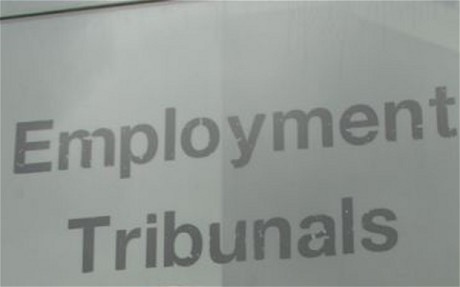 The Con-Dem’s proposals to make it more difficult for workers to seek redress for workplace disputes undermines a system that has served Britain well for nearly half a century, Unite has said.
The Con-Dem’s proposals to make it more difficult for workers to seek redress for workplace disputes undermines a system that has served Britain well for nearly half a century, Unite has said.
In a response to the government’s Resolving Workplace Disputes Consultation 2011 which aims to tighten up the rules that govern what steps employees can take to get a fair hearing, if problems arise at work. It is also a step back to the 1980s.
Unite said in its submission to the government that their proposals are based on ‘a number of myths’ and that there is no evidence to suggest that they will address the labour market concerns of employers or contribute to the economic recovery of the country. On the contrary, such proposals would bar vulnerable workers from receiving justice.
Unite assistant general secretary Tony Burke said: ”The government must be careful. It cannot play with the fundamental principle of access to justice simply to appease the CBI which has been lobbying for exactly these changes very openly.
”It is tough enough for UK workers, who have the poorest workplace protection compared to their European counterparts, without the government fabricating evidence in order to do the dirty work of a powerful business interest group.”
Unite said that the number of claims received should be seen in the context of the number of employed people in the UK and, even at it highest level, the claims represent less than one per cent of the working population.
The thrust of the government’s proposals – to save money – were questionable and Unite did not accept that the proposals will lead to ‘the resource savings envisaged’.
Unite is totally opposed to the qualifying period for unfair dismissal claims being extended to two years from the current level of 12 months set in 1999.
Unite said that the government should invest more to ensure that employers managed their staff better from day one, so reducing the need for unfair dismissal claims arising in the first place.
Robust workplace resolution mechanisms should be in place – but these should be in support of, and not as a substitute, for access to employment tribunals.
Unite does not accept the need for ‘substantial or urgent change’ to the employment tribunal system – and that more efficient resolution of workplace disputes would occur if there were legislation that ‘encouraged rather than hindered’ the growth of trade union recognition.
Unite’s other points include:
- Rejecting the argument – the basis for this review – that the current employment tribunal system is a deterrent for employers to engage new employees.
- Opposing the idea that judges should sit alone at employment tribunal hearings, replacing the current three person panel. Unite understands that many employment judges believe that unfair dismissal cases should be heard by a panel, which includes lay members.
- Believing that where formal collective and individual agreements exist between the workforce and the employer the prospect of early resolution is more likely.
- Believing that mediation can only work as a completely voluntary and confidential form of alternative dispute resolution, but sees no advantages to in-house mediation.
The TUC have also slammed the proposals – saying they will lead to more discrimination claims brought before Employment Tribunals. Click here to read more.
Download the full submission: Unite response to Resolving Workplace Disputes Consultation 2011
More comment on this issue:
Works Management magazine
Print Week magazine
FreshBusinessThinking.com
